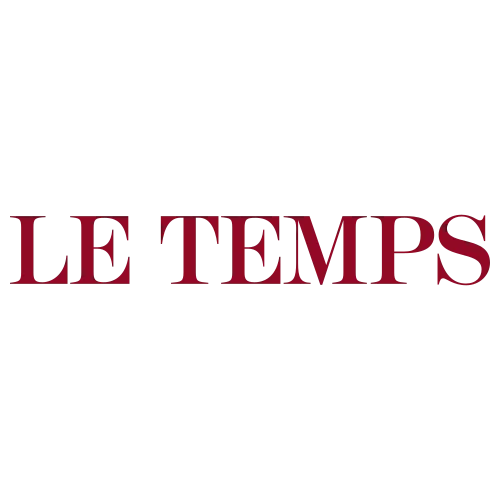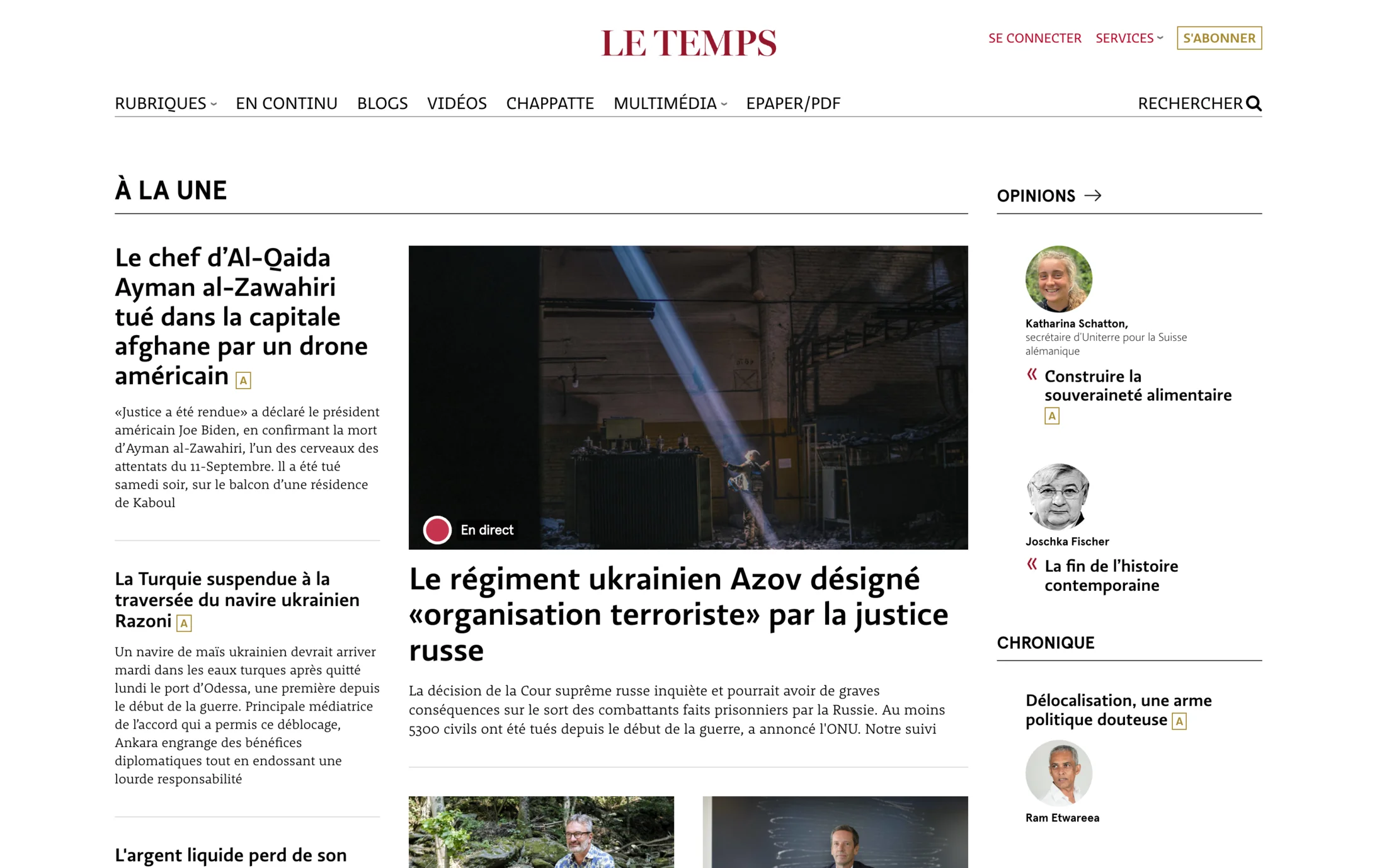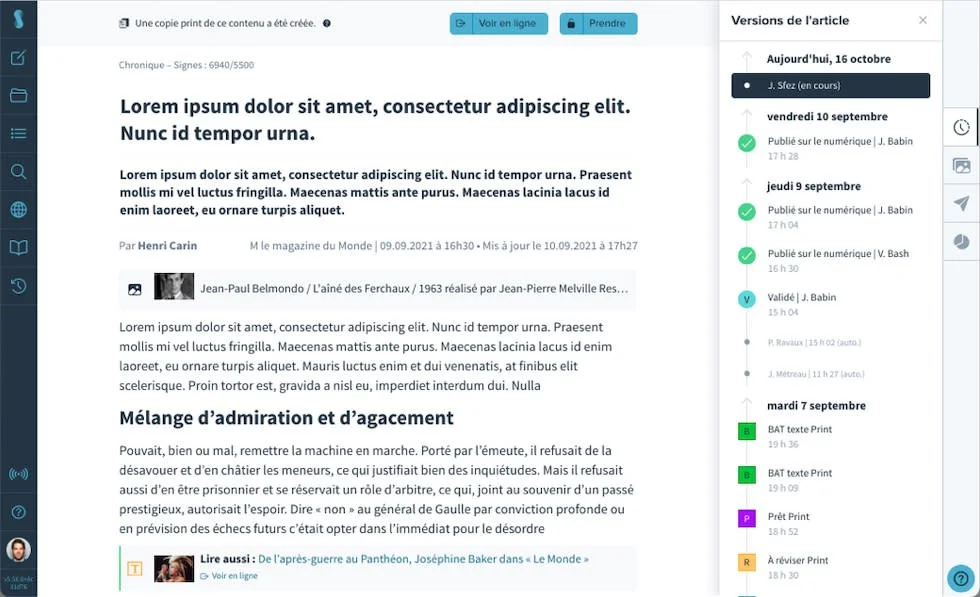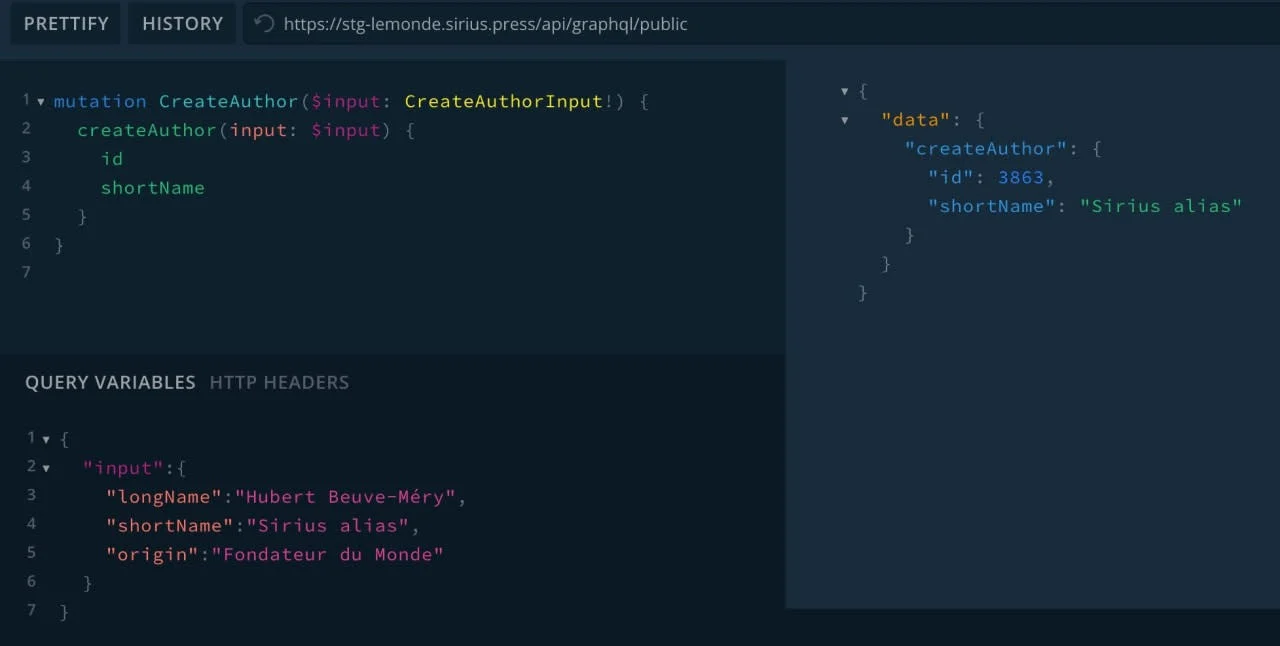Sirius is a Content Management System, specifically targeted towards newspapers, developed by one of the most read newspapers in France, Le Monde. Sirius is a centralised platform for editors to write articles to publish them on their website, in the printed journal, and other publication channels. The platform allows journalists to write content with many add-ons, allowing them to easily include images, graphs, tweets and more into their content.
We maintain Le Temps’ website, so it was natural that we would be involved in this process, also because of our expertise in third party systems integration: we were involved in the integration of their previous press content management system, and have developed and currently maintain the Drupal plugins for Woodwing and Bynder, in particular.
It was important to Le Temps that the editors can create but also update content in Sirius, and do not need to interact with the website at all. The website should be updated from a simple click on Sirius’ side. Editors should also be able to preview their articles on the website easily, without having to publish content.
A seamless integration for the users
We fetch information from Sirius through their GraphQL API and populate content on the website with this information. We use article unique identifiers on Sirius and Drupal to check if the content already exists and if so, we update it instead of creating new content. We map the authors to make sure that there is no multiplication of the same author. We also prevent unnecessary data usage by checking if images are already in use on the website: we only upload new images to the website.
Because we use webhooks, editors can simply click on the “publish” button in their Sirius instance, and the article is automatically and instantaneously created or updated on the website.
A common pain point in such content-editing third party integrations, can be the difference of content display between both applications. Oftentimes, editors cannot know exactly what their content will look like on the final platform before they export it.
We allow editors to know exactly what their articles will look like by offering them to “preview” the articles. This feature does not create new content, so the website is not heavier because of it, and the access to these pages is controlled, so articles are still protected from external views.

The Sirius integration into the website was not even a topic in the journalists meeting following its deployment. That clearly shows how smoothly it went.
Thanks to these features, editors do not need to modify content on the website, and they do not need to go through the website’s backend to import content: they have only one interface to learn to use, for what the Le Temps team was pleased about.
A robust and easy to troubleshoot integration for editors
We took advantage of the existing module “past”, allowing extensive logging. We log errors caused by the module and log an explicit and detailed message indicating what could be the problem. For example, in our setup we only allow authors that already exist in the system, to prevent multiplication of profiles for the same author. If an article is signed by an unknown author, such a message would be logged. The person administering the integration can then easily troubleshoot and fix the problem.
Finally, our integration is supported by extensive automatic testing, which allows us to efficiently prevent regressions when developing new features.
A successful collaboration
The efficient use of communication tools for direct conversation and for structured feature request and feedback, contributed largely to the success of this collaboration.
We have already implemented several additional features to the Sirius integration, and more are planned.


